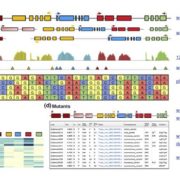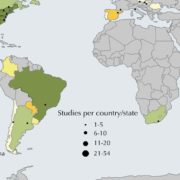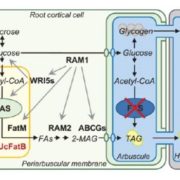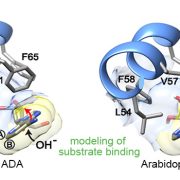Novel loci underlie natural variation in vitamin E levels in maize grain
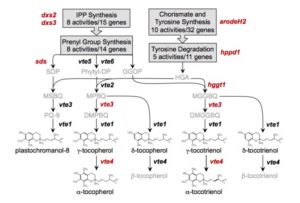 Vitamin E (alpha-tocopherol and related tocochromanol compounds) is a lipid-soluble antioxidant that contributes to numerous cellular activities and confers protection against many diseases, from cancer to cardiovascular disease. The main sources of vitamin E for humans are plant oils, but most crop seeds produce tocopherols with only low vitamin E activity. The biosynthetic pathway of tocochromanols is fully known for Arabidopsis. Diepenbrock et al. took advantage of existing genetic tools (including recombinant inbred lines and HapMap sequence variants) to identify genes responsible for natural genetic variation in maize. They identified 14 genes associated with natural variation for tocochromanols, of which six had not previously been identified as affecting tocochromanols in any plant species. These findings provide new insights into the biosynthesis of these compounds, and provide tools for breeding and engineering of vitamin E in crops. Plant Cell 10.1105/tpc.17.00475
Vitamin E (alpha-tocopherol and related tocochromanol compounds) is a lipid-soluble antioxidant that contributes to numerous cellular activities and confers protection against many diseases, from cancer to cardiovascular disease. The main sources of vitamin E for humans are plant oils, but most crop seeds produce tocopherols with only low vitamin E activity. The biosynthetic pathway of tocochromanols is fully known for Arabidopsis. Diepenbrock et al. took advantage of existing genetic tools (including recombinant inbred lines and HapMap sequence variants) to identify genes responsible for natural genetic variation in maize. They identified 14 genes associated with natural variation for tocochromanols, of which six had not previously been identified as affecting tocochromanols in any plant species. These findings provide new insights into the biosynthesis of these compounds, and provide tools for breeding and engineering of vitamin E in crops. Plant Cell 10.1105/tpc.17.00475


